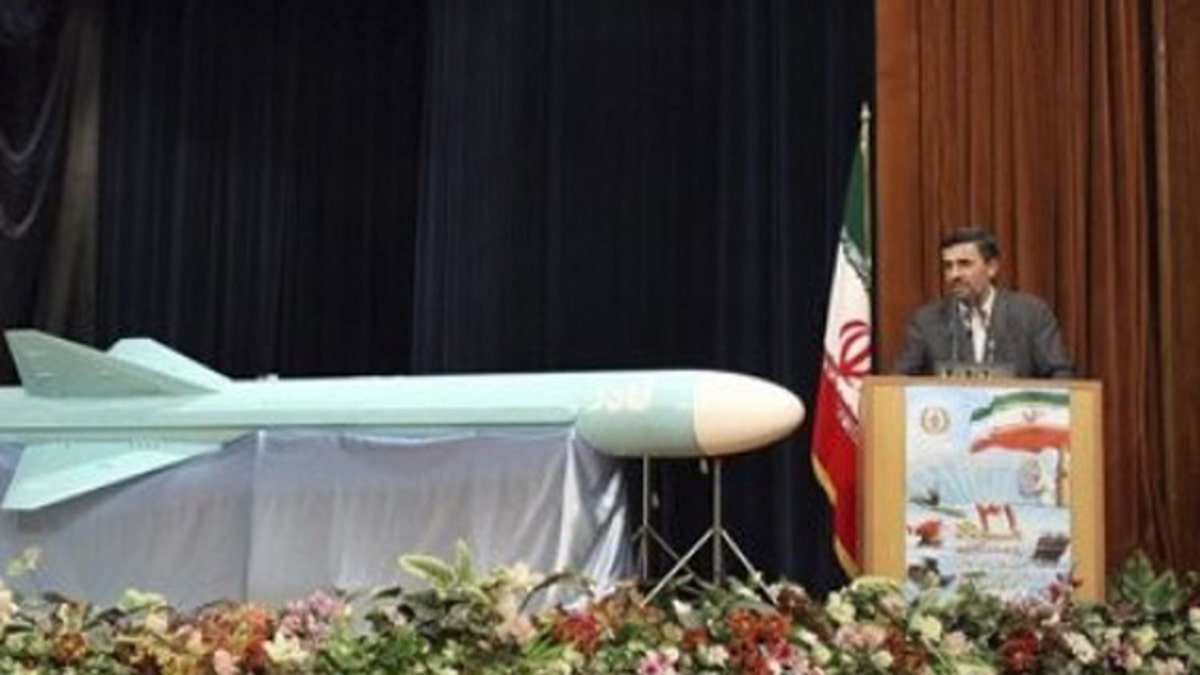
Aug. 23: President Mahmoud Ahmadinejad stands next to a Ghader, or Capable, a new Iranian-made cruise missile, in Iran. (AP)
TEHRAN, Iran – Iran has begun to mass manufacture a domestically developed cruise missile that reportedly could be used to strike Israel and potentially counter U.S. naval presence in the Persian Gulf.
The missile, called Ghader, which means capable in Farsi, has a 124-mile range and can "sink giant warships," Gen. Ahmad Vahidi, the Iranian defense minister, said in an interview on Press TV. He went on to say the missile could be launched quickly and travel at low altitudes.
The exact number of missiles produced is unclear, but they reportedly were delivered to the Revolutionary Guard’s naval division. The country often makes announcements about new advances in military technology that cannot be independently verified.
Vahidi called the manufacture of the missile a "great achievement" and denied reports circulating that the missile was not produced in the country, The Jerusalem Post reported.
Iranian President Mahmoud Ahmadinejad unveiled the missile in August, when he said the intention was defensive and to ensure that Iran's enemies "do not dare attack," the AFP reported.
However, Iran’s growing arsenal includes short- and medium-range ballistic missiles that are capable of hitting targets in the region, such as Israel and U.S. military bases in the Gulf. Reports of the mass production comes at a time when there appears to be increasing tension between Iran and the U.S.
The West is already concerned about Iran's military capabilities, especially the implications of the country's disputed nuclear program. The U.S. and some of its allies, as well as the U.N.'s nuclear agency, the International Atomic Energy Agency, fear that Iran is trying to produce a nuclear weapon. Tehran denies the charges.
On Tuesday, the Iran announced plans to move naval vessels out of the Persian Gulf and into the Atlantic Ocean, "near maritime borders of the United States.”
“As the global arrogance (forces of imperialism) have a (military) presence near our sea borders, we also plan to have a strong presence near the U.S. sea borders with the help of the soldiers who are loyal to the vali-e faqih (supreme jurisprudent),” said Rear Admiral Habibollah Sayyari, as quoted and paraphrased by the Tehran Times.
Iran began a military self-sufficiency program in 1992, under which it produces a large range of weapons, including tanks, missiles, jet fighters, unmanned drone aircraft and torpedoes.
The Associated Press contributed to this report.




















